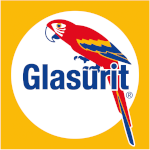FBHVC Launches Europe's First Apprenticeship in Historic Vehicle
Published: 27/06/2014
The UK is to get an OFQUAL accredited apprenticeship programme in historic vehicle restoration. This means that through the initiative of the Federation of British Historic Vehicle Clubs, the skills gap which had previously been identified by FBHVC research (carried out in conjunction with the University of Brighton Business School) will be filled by a whole new generation of craftsmen and craftswomen who will replace many of the specialist technicians now approaching retirement.
FBHVC have been working with the Institute of the Motor Industry (IMI) to develop this new apprenticeship in vehicle restoration.
It has been supported by Bicester Heritage, MG Car Club and McGrath Maserati Ltd to develop an apprenticeship framework which was submitted to the government in May this year.
A team of industry experts reviewed the first draft of the framework and the final document is available on the FBHVC website.
The framework document was sent to the Office of Qualifications and Examinations Regulation (OFQUAL) for approval, and this was granted early in June.
Following this approval the vehicle restoration apprenticeship scheme can be adopted by any college who have the necessary facilities and teaching staff.
The entry level of the course is level 2 which gives a general training in all aspects of vehicle restoration skills. This includes the theory, practical work and finally the competence to perform the task. It is anticipated that it will take two years to achieve level 2. Students who complete level 2 can then elect to specialise in specific aspects of vehicle restoration and this will take a further 18 months and will result in a level 3 qualification.
The government is generally funding colleges who take 16 to 18 year old students on to apprenticeship schemes. This drives colleges to prioritise this age group to ensure they are fully funded, but it does make it more difficult to find places for older students. Other funding for older students is possible but it will depend on the local college as to how many older students can be accommodated.
Colleges can now run the course but they must comply with the framework and deliver the course syllabus. No changes can be made to the course without FBHVC approval. The Federation is therefore the guardian of the framework and will be responsible for upholding the standards of the training and therefore the quality of the craftsmen and women graduating.
There are likely to be two courses offered by colleges. Both options deliver the same course content and both achieve the level 2 qualification in a 2 year period.
The first option is to run a full apprenticeship course from the start, with employers recruiting the apprentice and then sending them to college on a block release basis. The apprentice is an employee of the business and has to be paid at least the minimum wage for an apprentice, which is dependent on age. It is also usual for the employer to pay travelling and accommodation costs if required. By working directly for a business the competence of the student can be monitored and at the end of the two years the level 2 qualification would be awarded. Students could then continue to level 3 still on block release to specialise in a chosen subject.
The other option for colleges is to run an extended learning course. This is a full time college based course for the first year with the candidates remaining as students for this period. The course follows the same framework and syllabus as the block release course but is unable to complete the competence part of the qualification until they find an employer in the second year. Having found employment in the second year they complete the course doing block release at college and completing the competence requirements of the course. The student is then awarded the level 2 qualification in vehicle restoration.
Overall FBHVC know from a recent survey that the industry needs nearly 1000 new apprentices over the next five years and we are now working with a number of colleges who are interested in running our vehicle restoration apprenticeship.
Banbury & Bicester College, and S&B Automotive Academy have already announced their intent to run the course from September 2014 and we hope further announcements will follow.
Further details on the FBHVC Historic Vehicle Restoration Apprenticeship can be found by going to the Apprenticeship section in the Trade & Skills area of the FBHVC website.
http://www.fbhvc.co.uk/trade-and-skills/apprenticeship/
ENDS
Editor's notes
1. There is more information about apprenticeships in general and specifically this course on both the Government's OFQUAL website and the Institute of the Motor Industry's Award website.
www.imiawards.org.uk
www.ofqual.gov.uk
2. A full copy of the Framework Document can be found at:
http://www.fbhvc.co.uk/trade-and-skills/apprenticeship/
3. For further information call the FBHVC communications director, Geoff Lancaster on 07860 562659 or email commsdirector@fbhvc.co.uk.
4. The Federation of British Historic Vehicle Clubs works closely with a wide range of organisations and government departments to retain the freedom to use historic vehicles on the UK's roads. The FBHVC has over 540 organisations as members representing over 260,000 individual owners.










